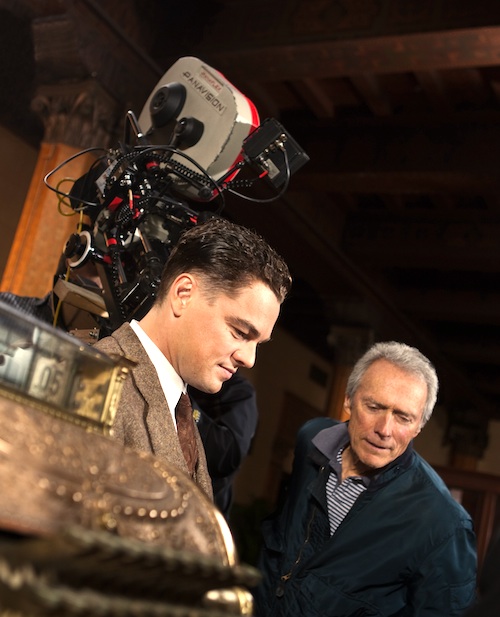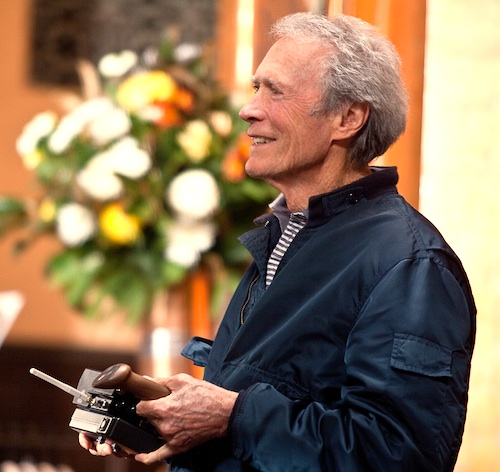
By Jason Apuzzo. I wanted to briefly mention a superb interview conducted by Patrick Goldstein in The LA Times today with Clint Eastwood, director of the new film J. Edgar. Patrick did an excellent job of getting Clint to talk candidly about his political views, and also of teasing out some of the basic ideas that have motivated his career.
In the interview, Clint talks about the various Republican nominees for President (Cain, Romney, Perry), about his attitude toward spending – both the government’s, and his own as a professional filmmaker – and other issues of the moment.
The interview also touches on what I believe to be a basic, rock-bottom issue for Eastwood in his life and career: the need to do tough things in order to survive in an unforgiving world. There is a hard, unsentimental quality to Eastwood’s films that I’ve always liked. Eastwood’s characters are never saints; instead, they’re pragmatists and loners, navigating what is often a morally ambiguous world. (You even feel this in the way Clint’s films are photographed – usually in a shadowy, chiaroscuro style.) Clint is never out to b.s. his audience about human nature, or about what people sometimes need to do to get ahead. As Patrick aptly puts it in his article, “[w]hen you’re in Clint Eastwood country, it’s the strong who survive.”
Eastwood is part of an older, Depression-era generation that lived through a period of time – the economic crash of the 1930s – when the bottom completely fell out of society. It was a period in time when, even though FDR had established a safety net for the destitute, there nonetheless wasn’t the kind of accumulated wealth that we have today after generations of economic growth. Even the poorest people today still have things like electricity, refrigerators, cars, telephones, TVs, etc.; this wasn’t the case during the Great Depression. When people were poor during the Depression, it was in ways that today’s Occupy Wall Street crowd – chattering on their cell phones and Twitter accounts – can’t possibly fathom. The only way we can grasp these things today is by talking to the older generations, or perhaps by reading John Steinbeck or Studs Terkel, or looking at the photography of Dorothea Lange … or watching a film like Clint Eastwood’s Honkytonk Man.

With Eastwood having lived through the hardship of this period as a young person, my sense is that over the years he’s developed two somewhat conflicting qualities: a hardness of spirit, for which his own characters (The Man With No Name, Harry Callahan) are famous, but also a more forgiving, ‘libertarian’ streak in terms of allowing people a wide berth to do what they they think they need to do in order to get by. It’s telling, for example, that of the various Republican candidates Eastwood would be drawn to Herman Cain. “I love Cain’s story,” says Eastwood in Patrick’s article. “He’s a guy who came from nowhere and did well, obviously against heavy odds.” Those same words could easily describe Clint, himself.
I haven’t seen J. Edgar yet, but having read the screenplay it’s easy to see how Hoover’s story fits into Clint’s thinking. Hoover did what he thought he needed to do in order for the country to survive against organized crime, political terrorism, and communist infiltration. This does not mean, however, that Hoover was a saint, or that his legacy should be sentimentalized. It still appalls me, for example, that there was a time when great men and advocates of freedom like Frank Capra and Thomas Mann had FBI files on them. There should be no place for this kind of thing in American life.
At the same time, though, there is always the basic need for the country to survive. That, I strongly believe, was Hoover’s overriding motivation – and it was the right one. As a successful actor-director now working into his 80s, it’s a motivation that Clint Eastwood surely understands.
Posted on November 8th, 2011 at 12:42pm.
